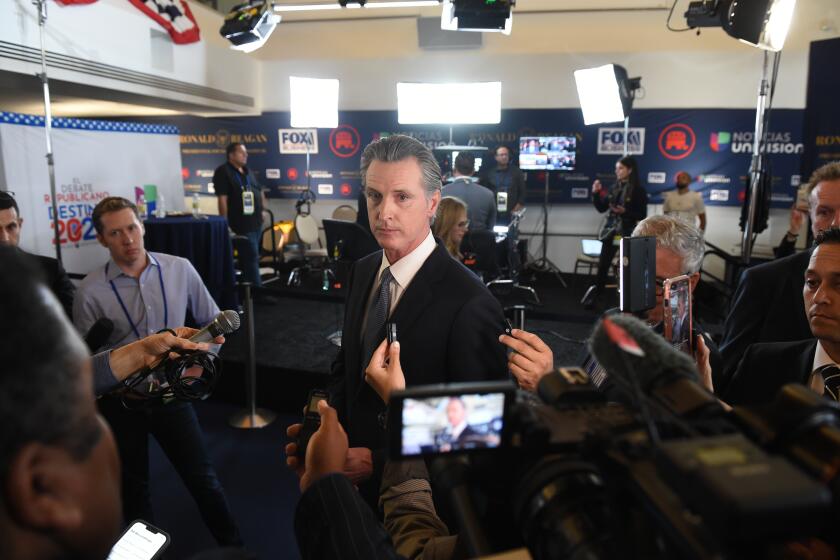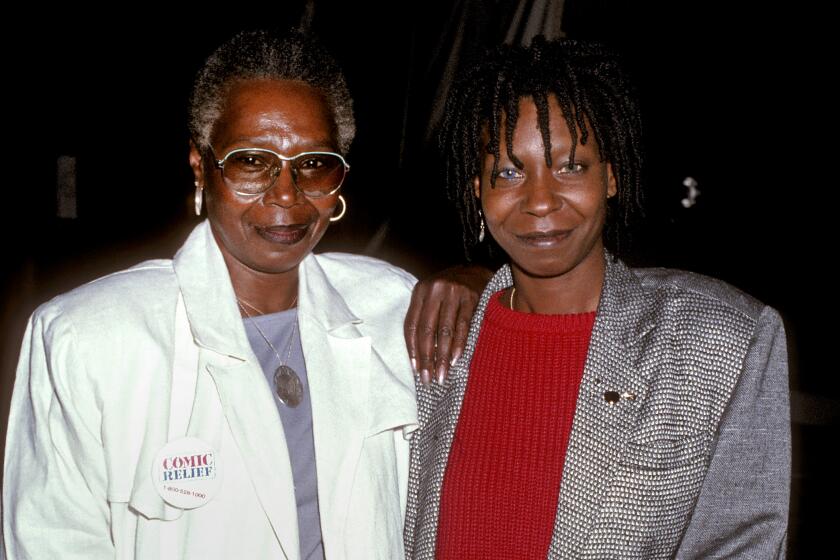An Officer and a Gentleman : IKE THE SOLDIER As They Knew Him <i> by Merle Miller (G. P. Putnam’s Sons: $24.95; 859 pp.) </i>
World Wars I and II were the climactic events of this century. The one shattered the old order of European hegemony, the other introduced a new order of East-West standoff. Vast in scope, lasting in their importance, and dramatic to boot, the two wars continued to attract authors.
At this late date, the seduced writer takes on anything involving World War I or II advisedly. The library shelves are crowded already with books on those subjects. Finding anything new to say, let alone finding an aspect not plucked clean by predecessors, is all but impossible.
It is even more difficult given the opportunity of the subject. According to his introduction, Merle Miller’s is perhaps the 100th book on Eisenhower--including surprisingly good works by his son John, “Allies” (1982), and one by his grandson David, “Eisenhower at War” (1987). Because so many of the predecessors have dealt with Eisenhower the soldier rather than Eisenhower the President, Miller tramps familiar ground despite handling “a vast amount of material that had never been published” and despite his effort to write a biography rather than a history. (Biographers struggle with the proper balance all the time.)
Asserting that his 100 predecessors have missed the mark, Miller seeks to describe the “kind of man he (Eisenhower) was and how he got that way.” For all that, he turns up little that is new about Eisenhower’s life or about the people who influenced his career. (Neither can Miller illuminate the rumored “affair” with Kay Summersby; Eisenhower was surely infatuated with that solicitous and attractive woman, but seems to have committed adultery only in spirit.)
The man aside, there is nothing fresh here on the turning points of Eisenhower’s career: why Army Chief of Staff George C. Marshall tapped him as commander of U.S. forces in the European Theater of Operations in June, 1942, thus setting Eisenhower on the road to the White House; or why Franklin D. Roosevelt changed his mind at the last minute and named Ike rather than Marshall to command the invasion of the Continent.
Miller’s last work--he died shortly after completing the manuscript--is professionally crafted, a book of interest to the casual reader or biography fan. But World War II buffs will have it all, and those who would hope for insights into the Eisenhower presidency will have to look elsewhere.
More to Read
Sign up for our Book Club newsletter
Get the latest news, events and more from the Los Angeles Times Book Club, and help us get L.A. reading and talking.
You may occasionally receive promotional content from the Los Angeles Times.






